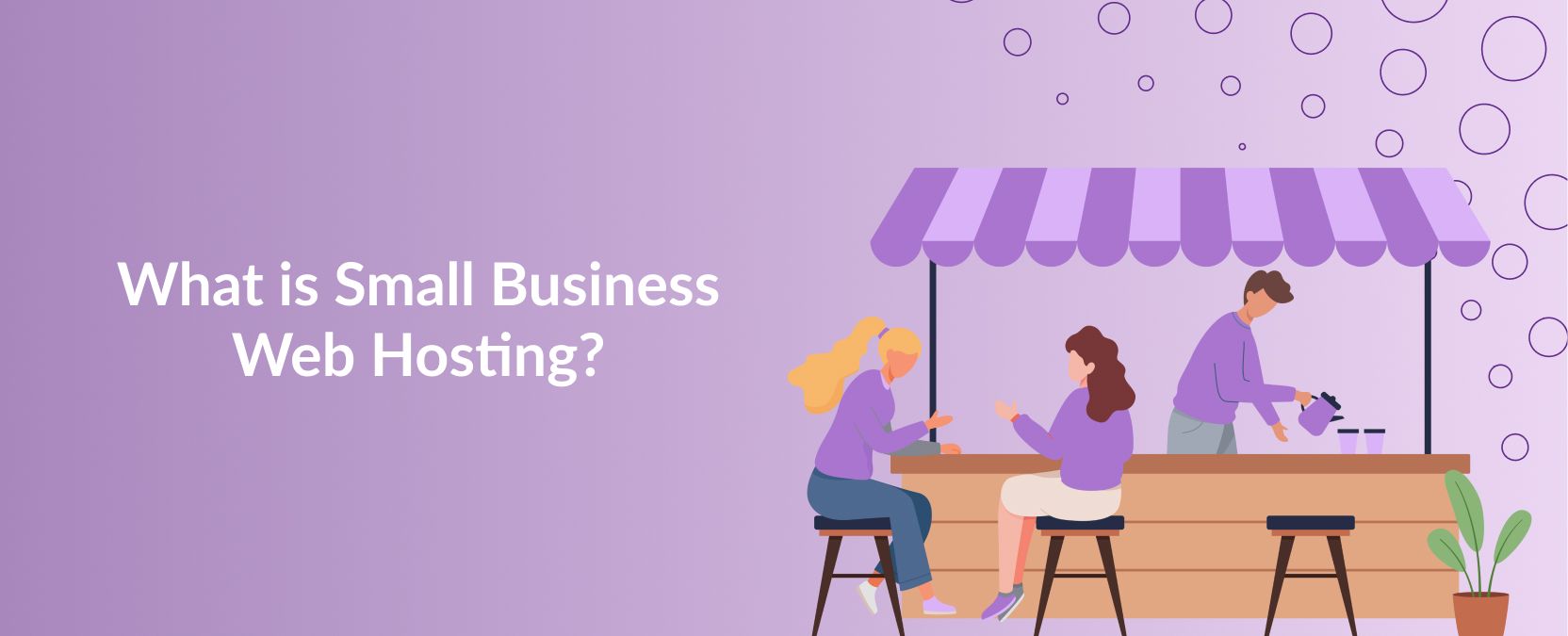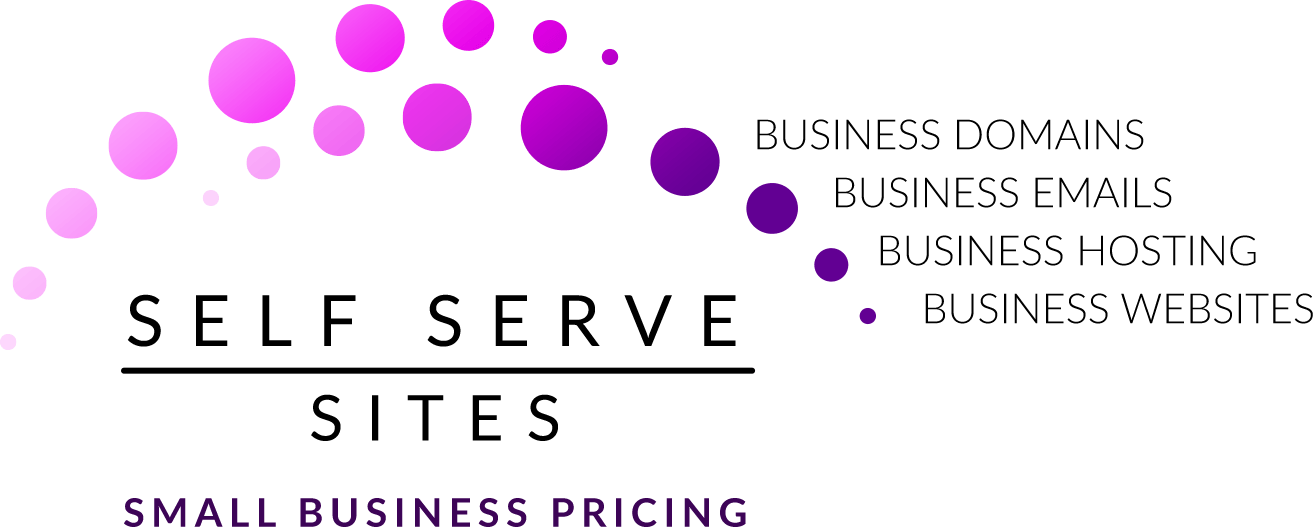A Quick Guide to Choosing the Best Web Hosting for Small Businesses in Australia
When it comes to building an online presence for your Small Business, one of the most critical decisions you'll face is selecting the right
Web Hosting provider. The right Hosting service can ensure your Website performs well, stays secure, and grows with your business. In this blog, we’ll summarise the key takeaways from our last three blogs, covering the different types of Web Hosting, factors to consider when choosing a host, and what services Small Businesses should look for.

What is Small Business Web Hosting?
Small Business Web Hosting is a service that allows businesses to host their Website on a server, making it accessible to Customers on the internet. In simple terms, Web Hosting is like renting space on the internet for your
Website to live. There are various types of
Hosting services available, each offering different levels of performance, control, and support. The goal of Small Business Web Hosting is to
provide a reliable, secure, and scalable solution to ensure that your Website runs smoothly and can handle the demands of your business.

Why is Web Hosting Important for Small Businesses?
Having the right Web Hosting is essential for several reasons:
Website Performance: The speed and uptime of your Website are directly influenced by your Hosting provider. A slow or unreliable Website can lead to lost sales, frustrated Customers, and a poor online reputation.
Security:
Hosting services provide the necessary security measures to protect your Website and Customer data from cyber threats. This includes SSL certificates, firewalls, and regular backups, all crucial for keeping your business safe.
Scalability:
As your business grows, so will your Website’s traffic and needs. A reliable Hosting provider ensures you can easily scale your resources without experiencing downtime or performance issues.
Customer Trust:
A professional, well-functioning Website hosted on a secure and reliable server can build trust with your Customers. If your Website is down or slow to load, it can damage your brand’s reputation.
Support and Maintenance: The right Hosting provider offers support to help you resolve any issues quickly, ensuring minimal disruption to your online presence.

Types of Web Hosting for Small Businesses
There are several Web Hosting options available, each designed to meet specific needs. Here's a recap of the most common Web Hosting types:
Shared Hosting:
This is the most budget-friendly option. Your Website shares server resources with other sites, making it ideal for Small Businesses with low traffic. While it’s affordable, the shared resources can sometimes lead to slower speeds or downtime.
VPS Hosting: A step up from shared Hosting, VPS (Virtual Private Server) Hosting provides dedicated resources for your Website. It offers better performance and more control, making it suitable for growing Small Businesses that need more power but are not ready for dedicated Hosting.
Dedicated Hosting:
For businesses with high traffic or complex needs, dedicated Hosting gives you an entire server all to yourself. While it’s the most expensive option, it offers maximum performance, control, and security.
Cloud Hosting:
Cloud Hosting is a flexible and scalable option. It uses a network of servers to host your Website, providing excellent uptime and the ability to scale resources as your business grows. Cloud Hosting is ideal for businesses that experience fluctuating traffic and want pay-as-you-go pricing.
Managed WordPress Hosting: If you’re using WordPress for your Website, managed WordPress Hosting is a great choice. It’s optimised for WordPress, with automatic updates, enhanced security, and expert support, making it a hassle-free option for Small Businesses using this platform.

Factors to Consider When Choosing a Web Hosting Provider
Choosing a Hosting provider is more than just picking the cheapest option. Here are some important factors to consider:
Performance and Speed:
A
fast Website is crucial for user experience and SEO. Choose a provider that offers solid uptime and fast load times to ensure your site runs smoothly.
Scalability: As your business grows, your Hosting needs will likely change. Look for a provider that offers easy upgrades or flexible plans to accommodate your expanding Website.
Security: Online security is essential for protecting your Website and Customer data. Ensure your Hosting provider offers features like SSL certificates, firewalls, and regular backups to keep your Website secure.
Customer Support:
Great
Customer support is crucial for troubleshooting issues. Choose a Hosting provider that offers 24/7 support and has a reputation for providing excellent service.
Cost: While it’s tempting to go for the cheapest option, make sure you’re getting the best value for your money. Consider the features included in each plan, and ensure they align with your business needs.

What Hosting Services Should Small Businesses Look For?
When selecting a Hosting service, Small Businesses should focus on a few key features to ensure their Websites run effectively. These include:
Reliability and Uptime:
You want a Hosting provider with a proven track record of
uptime (ideally 99.9% or higher) to ensure your Website is always accessible to Customers.
Ease of Use: Choose a provider that offers an easy-to-use control panel and a smooth setup process. Some hosts also provide Website-building tools for beginners.
Security Features: Look for Hosting services that offer free SSL certificates, regular backups, and
security protocols to protect your Website from potential threats.
Performance Optimisations:
Some Hosting providers offer performance enhancements, like caching and content delivery networks (CDNs), to ensure your Website loads quickly no matter where your Customers are located.
Support for Growth: As your business grows, you’ll need more resources. Choose a provider that offers flexible plans and scalability to support your growth without having to migrate to a new server.
Choosing the best Web Hosting for Small Business in Australia is a crucial step for any Small Business looking to establish a strong online presence. By understanding the different types of Hosting—shared, VPS, dedicated, cloud, and managed WordPress—you can find a plan that meets your current needs and allows for future growth. Always keep in mind factors like performance, security, support, and scalability when making your decision.
In the end, the best Web Hosting for Small Business in Australia will provide the foundation for a reliable, secure, and high-performing Website that can help your Small Business succeed online.










